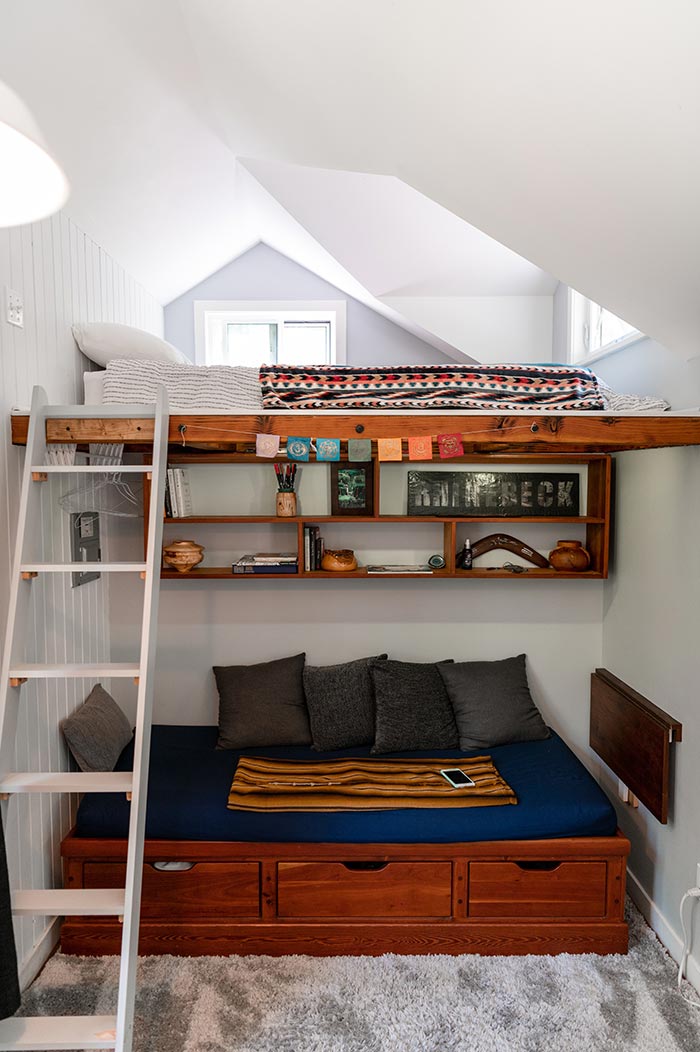
Tiny houses are becoming increasingly popular in today's society as more and more people are looking for ways to downsize and simplify their lives. These tiny homes, typically measuring between 100 and 400 square feet, offer a minimalist and sustainable living option that is both affordable and environmentally friendly.
One of the biggest appeals of tiny houses is their affordability. Traditional homes can cost hundreds of thousands of dollars, while tiny houses can be built for a fraction of the cost. Additionally, the smaller size of the home means lower utility and maintenance costs, making tiny houses an attractive option for those looking to save money.
Another appeal of tiny houses is their environmental friendliness. Smaller homes require less energy to heat and cool, and many tiny house builders use sustainable materials such as reclaimed wood and solar panels. This makes tiny houses a great option for those looking to reduce their carbon footprint and live a more eco-friendly lifestyle.
Tiny houses also offer a minimalist and simple lifestyle. Without the excess space and clutter of a traditional home, tiny house dwellers are forced to focus on what truly matters in their lives and prioritize the things that bring them the most joy. This can lead to a more content and fulfilled life.
However, tiny houses are not without their challenges. One of the biggest challenges is finding a place to park the home. Many cities and towns have zoning laws that make it difficult to place a tiny house on a permanent foundation, and RV parks and campgrounds may not allow tiny houses. This can make it difficult for tiny house dwellers to find a stable and permanent place to call home.
Another challenge is the lack of space. While the minimalist lifestyle can be appealing, it can also be difficult to adjust to the smaller living space. For those with families or who like to entertain, a tiny house may not be the best option.
Despite these challenges, the tiny house movement continues to grow in popularity. As more and more people are looking for ways to downsize, simplify their lives, and live more sustainably, tiny houses offer a unique and appealing option. Whether you're looking to save money, reduce your carbon footprint, or live a more minimalist lifestyle, a tiny house may be the perfect solution.
Tiny houses are becoming more and more popular in today's society. They offer an affordable, environmentally friendly and minimalist lifestyle. They also have some challenges like finding a place to park and lack of space but for those looking for a sustainable and simple living option, a tiny house may be the perfect solution.
Pros of Tiny Houses
The Many Benefits of Tiny House Living: Affordability, Sustainability, and Simplicity
- Affordability: Tiny houses are typically less expensive to build and maintain than traditional homes.
- Environmental friendliness: Smaller homes require less energy to heat and cool, and many tiny house builders use sustainable materials such as reclaimed wood and solar panels.
- Minimalism and simplicity: Without the excess space and clutter of a traditional home, tiny house dwellers are forced to focus on what truly matters in their lives.
- Mobility: Tiny houses can be built on wheels, making it possible to take your home with you wherever you go.
- Low Maintenance: Tiny houses have less space and less appliances to maintain, so it will take less time and effort to keep it in order.
- Low Impact on the environment: Tiny houses take up less land, consume less resources and create less waste, making them a more sustainable living option.
- Low cost of living: Tiny houses typically have lower utility and maintenance costs, which can help save money in the long run.
- Increased sense of community: Tiny house communities tend to be close-knit, with a strong sense of community and support among residents.
Cons of Tiny Houses
Considering a Tiny House? Here are the Potential Drawbacks to Keep in Mind
- Limited space: Tiny houses have limited living space, which can be challenging for those with families or who like to entertain.
- Zoning and placement issues: Many cities and towns have zoning laws that make it difficult to place a tiny house on a permanent foundation, and RV parks and campgrounds may not allow tiny houses, making it difficult to find a stable and permanent place to call home.
- Lack of privacy: The small living space can make it difficult to have privacy and personal space.
- Limited storage: Tiny houses have limited storage space, so residents must be creative in finding ways to store their belongings.
- Limited facilities: Tiny houses typically have smaller or no bathrooms, kitchens, and bedrooms which can be a challenge for those who are used to traditional home facilities.
- Limited resale value: Tiny houses may not have the same resale value as traditional homes, making it difficult to recoup the initial investment if the owner decides to sell.
- Limited amenities: Tiny houses typically have fewer amenities than traditional homes, such as central heating and air conditioning, which can make them less comfortable in extreme weather conditions.
- Limited accessibility: Tiny houses can be difficult to access for people with disabilities or mobility issues.




















No comments: